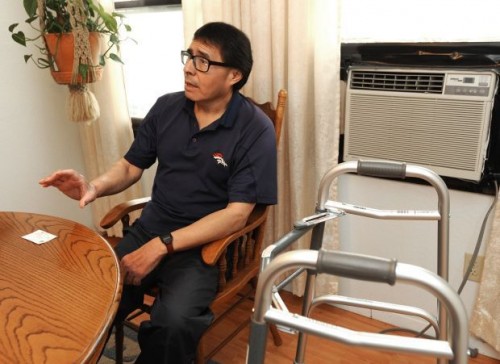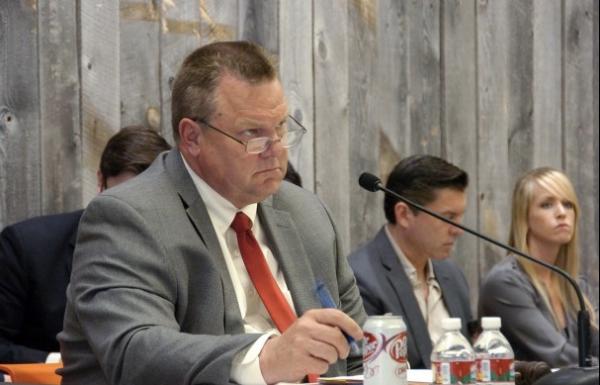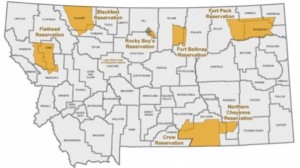
Photo/Larry Mayer, Gazette staff
By Tom Lutey, The Missoulian
BILLINGS – Montana’s Indian tribes, which until recently thought the Affordable Care Act would pass them by, could face fines exceeding $1 million for not offering insurance to employees.
Beginning in 2016, businesses with 50 or more full-time workers will have to offer at least a minimum amount of health insurance to employees. Those who don’t comply face tax penalties, and that includes tribal governments.
The requirement has been a surprise to tribes, said George Heavy Runner, Blackfeet Insurance Services health and wellness coordinator. As individuals, American Indians have the option of choosing not to follow Affordable Care Act rules. Many assumed tribal governments, which are sovereign, had that same option.
“We thought this was a ship kind of passing us by,” Heavy Runner said. “But it’s not just a ship passing through the night. We have been identified in this legislation, just not where we thought we would be.”
Tax penalties facing the Blackfeet Tribe for not complying could be as high as $1.1 million. Crow Tribal Chairman Darrin Old Coyote said the size of the fee depends on how many people a tribal government employs.
“If we don’t do the mandate, we’re going to be fined for the number of employees we have, and that number could be up to $1.5 million,” Old Coyote said. “We pay federal tax, and our employees pay federal tax and so we’re part of the large employer mandate.”
The tribes can avoid the fees by offering the insurance to their workers. Old Coyote said the Crow have hired a benefits manager to do just that.
***
The change caught tribes off-guard because American Indians by treaty receive health care via the Indian Health Service on reservations. IHS is much maligned by tribal members for not providing adequate health care and for not covering services by specialists outside the IHS program.
Because IHS is limited, tribal members who work for their government would benefit from having other health care, Old Coyote said. The challenge is having a health care plan to offer by next year.
Suing to get off the employer mandate has already been tried. In February, Wyoming’s Northern Arapaho Tribe failed to convince a federal judge to block the employer mandate. The Northern Arapaho argued that subjecting tribes to the employer mandate was an oversight that overlooked treaty rights related to Indian health care, while also stating that tax credits and benefits granted to Indians under the Affordable Care Act would be denied.
Earlier this month, U.S. Sen. Steve Daines, R-Mont., and U.S. Rep. Ryan Zinke, R-Mont., announced a bill to exempt tribes from the employer mandate. Daines called the mandate a job killer for tribal governments, who wouldn’t hire as many employees if they had to pay significant penalties.
Other sponsors of the bill, such as Republican Sen. John Thune, of South Dakota, said it was unfair to exempt individual tribal members and not exempt tribal governments as well.
However, exempting tribes from the employer mandate won’t help the nagging problems with Indian health care, said a representative for Sen. Jon Tester, D-Mont.
“This bill does nothing to solve the underlying problem, which is crisis-level health disparities among Native Americans,” said Marnee Banks. “If we are serious about increasing access to quality health care in Indian Country, we will expand Medicaid and adequately fund the Indian Health Service.”
***
IHS spending on Indian patients was $2,741 per person in 2013, according to the National Congress of American Indians, which asserts that IHS is severely underfunded. Medicaid spending, by comparison was $5,841.
The state of Montana is awaiting federal approval of the state’s plan to begin offering Medicaid to Montanans earning up to 138 percent of the federal poverty level.
Medicaid expansion would extend benefits to as many as 11,000 tribal members over the next four years, said Jon Ebelt of Montana’s Department of Public Health and Human Services. The program would benefit tribal health care in general, Ebelt said.
“Medicaid expansion revenue will be critical for building health infrastructure, expanding the workforce, and keeping health care providers in tribal communities,” Ebelt said. “Medicaid revenues will bring new funds to the programs and further investment in the Indian health system infrastructure and workforce. This is an opportunity to provide more health care services, create more jobs and employ more Native Americans in tribal communities.”
Old Coyote said he’s concerned that state benefits representatives won’t be able to clearly explain the expanded Medicaid program to some Crow Indians who speak Crow as their primary language. He’s asked the state to provide a benefits representative who is fluent in Crow.
Ebelt said the state is able to provide translation assistance if necessary and in determining an outreach plan with members of the Indian Health Service at Crow Agency.




